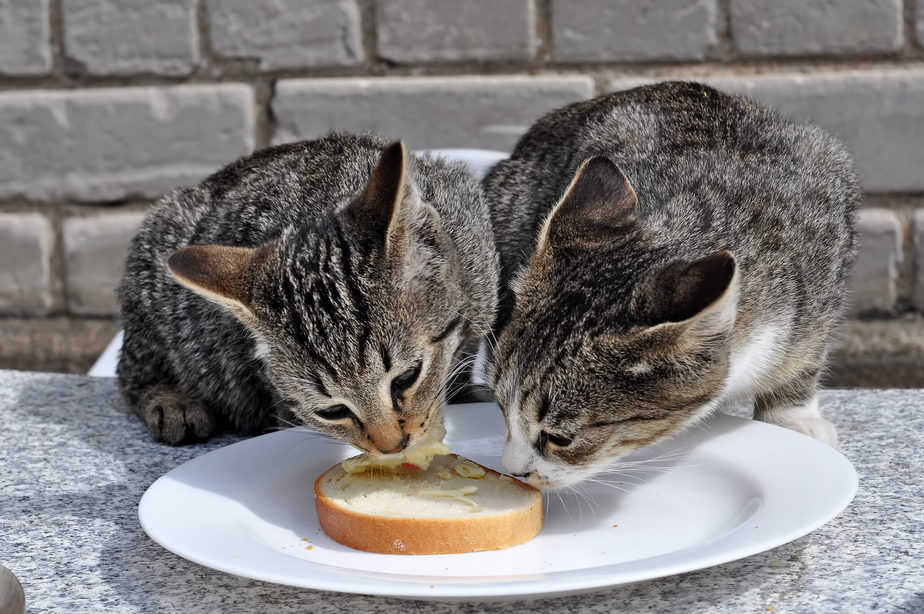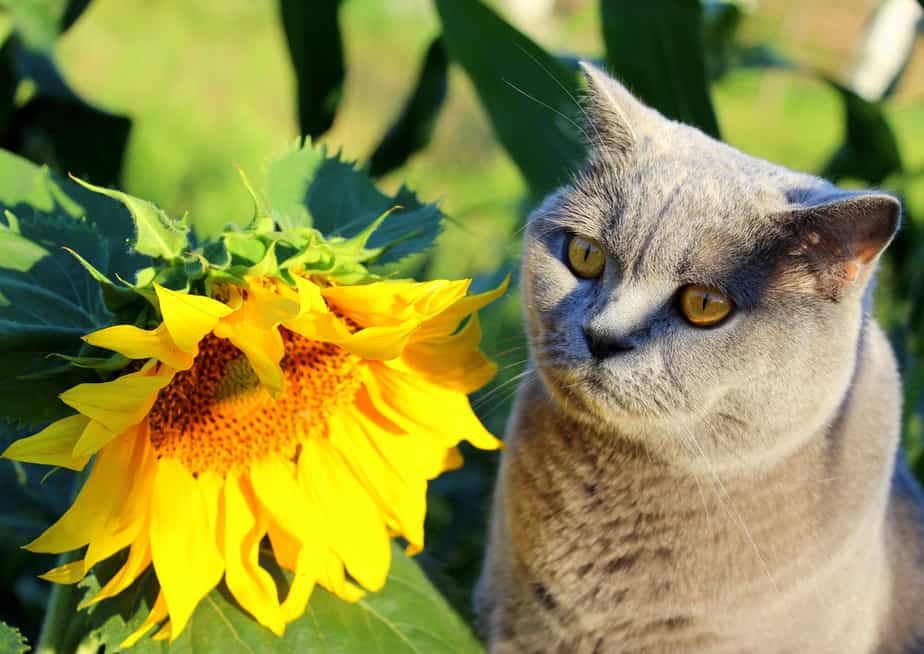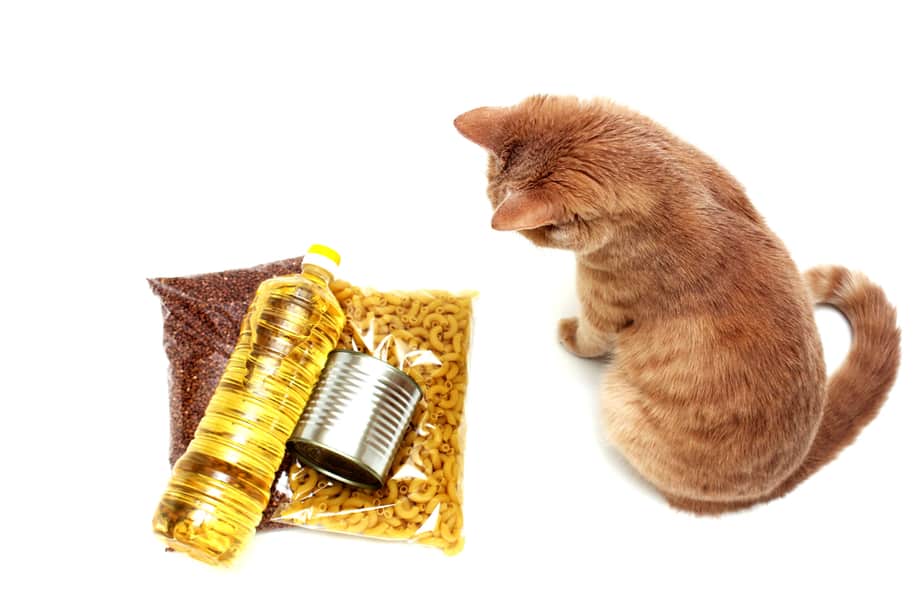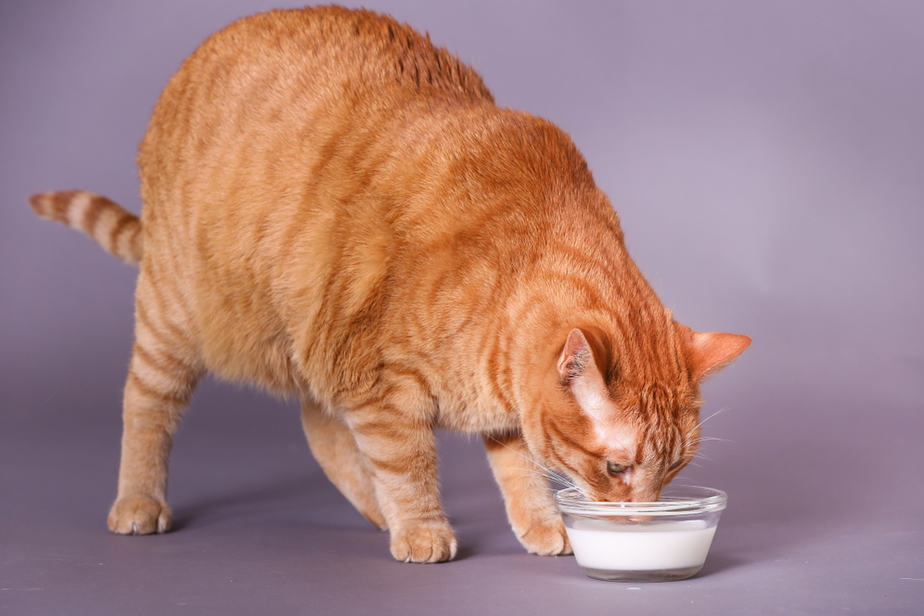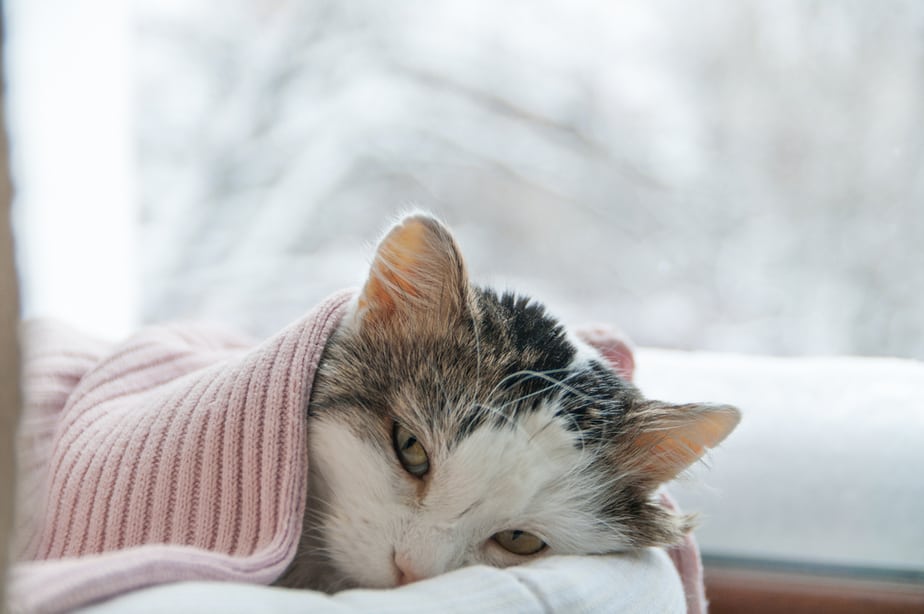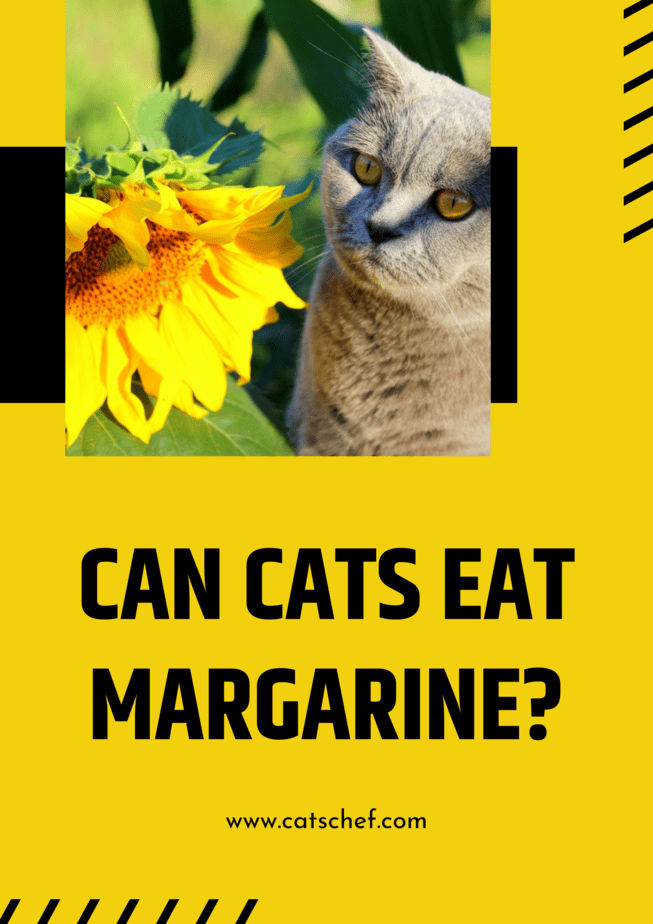📖 Table of Content:
Margarine is a staple and is widely used in many households. When someone says margarine, you may think of butter. Although they are quite similar, these two ingredients are not the same. We know our furry friends shouldn’t eat butter, but can cats eat margarine?
This is a frequent question among cat-lovers, especially those who love cooking. Our four-legged companions are used to following our every step, mainly when those steps lead to the kitchen!
It’s not uncommon for our pets to show interest in human food either by stealing it or begging for it. However, our foods can sometimes bring more harm than joy to our beloved pe(s)ts.
You’re here because you’re wondering if cats can eat margarine – especially if you’ve caught your trouble-maker pawing it off the counter.
Is margarine dangerous to cats?
Margarine isn’t necessarily dangerous to your pet, but it’s not recommended either. What could she possibly benefit from eating margarine or butter? Ask yourself this question before introducing new items to your cat’s diet, especially human food.
While margarine isn’t poisonous to felines, it certainly doesn’t fulfill any of their nutritional requirements. Both margarine and butter are dairy products which isn’t the best-case scenario for cats. Let’s see why.
What is margarine made of?
First of all, margarine is a spread that’s made for cooking and baking. It usually serves as a substitute for butter, although they aren’t the same. Both have a yellow color, but the origins of the color are different.
While butter is mostly made of heavy cream, margarine is composed of vegetable oils. Because of this, margarine could be a safer alternative than butter when it comes to you and your fluff.
Besides vegetable oils, margarine contains water, salt, and may or may not contain preservatives. The contents and ratios differ from one brand to another – some margarine brands are considered vegan.
Can cats eat margarine because of vegetable oils?
While vegetable oils aren’t toxic to felines, they could cause some mild gastrointestinal discomfort. And although the amount found in margarine shouldn’t be worrying, that doesn’t mean you should feed it to your pet.
Vegetable oils are what make margarine healthier than butter. This is because vegetable oils contain unsaturated fats in contrast to butter, which is packed with saturated ones. Unsaturated fats are healthy kinds of fat that won’t raise your cat’s cholesterol levels like saturated.
Felines need fat because it provides them with important energy. However, excess amounts of fat or any quantity of unhealthy fats can lead to health issues. Raised cholesterol in the blood can be the reason for developing heart issues.
When it comes to vegetable oils, while they’re not dangerous to cats, they could send your pet running to the litterbox. Some owners give vegetable oils to their pets to help with their hairballs. However, we don’t recommend treating your cat without prior consultation with your vet.
Soybean oil
Cats can have small amounts of soybean oil, but this shouldn’t become a habit. While soybeans are protein-rich, let’s not forget your cat isn’t delighted with plant material.
Don’t mistake soybean oil for soy sauce, though. This sauce could be dangerous for your fluff, while soybean oil has no clear health risks and could be a good nutritional addition to feline diets.
Is palm oil good for your pet? Can cats eat margarine because of it?
Vomiting, diarrhea, tiredness, and dehydration are common symptoms after consuming palm oil. In some circumstances, pancreatitis – a potentially life-threatening illness – can occur.
Because of its semi-solid state, washed palm oil can induce intestinal obstructions. Palm oil is also high in saturated fats, which elevate cholesterol.
Canola oil – dangerous or not?
Small amounts of canola oil are entirely safe for your furkid to consume. However, pure canola oil is 100% fat, which has been linked to obesity, diabetes, and pancreatitis.
It could give your cat the runs, but other than that, small amounts are safe.
What about salt?
Cats require sodium (salt) as a mineral that creates balance in their bodies. This mineral helps in nerve functions as well as muscle contractions. However, an abundance of this condiment can be harmful to felines.
If your pet is exposed to salt regularly and eats large quantities thereof, it can be detrimental to her health. This excessive intake of salt almost guarantees sodium toxicity, a health condition where one can expect symptoms like vomiting, diarrhea, dehydration, and excessive urination and thirst.
Make sure to provide your feline with the best care possible if she exhibits any of these symptoms. This means taking an emergency trip to the vet because these mild symptoms, if left untreated, can develop into something far more serious.
Some severe signs of salt poisoning include tremors, seizures, and even coma. Depending on the brand, margarine can contain decent amounts of salt, which is one of the reasons cats should rather not eat margarine.
Is milk in margarine good for cats?
For cats, milk can induce digestive problems such as diarrhea. Milk contains lactose, which your pets’ stomachs cannot take. This is why milk isn’t suggested.
Lactose intolerance is a condition in which the body has difficulty digesting milk. Lactose cannot be broken down by felines because they lack the necessary intestinal enzymes, lactase. Hence, milk is difficult for them to digest.
If you wish to give your pet milk, choose lactose-free or almond milk. Any other milk, particularly cow’s milk, can cause bloating and gassiness in your cat. Other than that, various gastrointestinal symptoms such as vomiting and diarrhea may occur.
Nutritional value of margarine
Now that we have established what margarine is made of, let’s see if there are any benefits for your pet. Let’s get back to those vegetable oils and their fats.
As previously mentioned, margarine contains unsaturated fats like polyunsaturated and monounsaturated fats. This is mainly because it’s made from plant-based oils such as palm oil, soybean oil, and canola oil.
Unsaturated fats are a healthier option for cats because they can reduce the risk of heart issues, unlike saturated fats. They also hold anti-inflammatory properties and won’t raise your feline’s cholesterol levels.
Now, why can’t cats eat margarine?
Even though it has some benefits like unsaturated fats, margarine still isn’t advisable for cats. It’s high in fat, carbs, and calories, all of which can be detrimental to your pet’s health.
Unhealthy fats
Excessive amounts of these nutrients can lead to certain health conditions. Too much fat can make your cat obese and increase the risk of heart disease.
High-fat foods in your cat’s diet could cause clogging of arteries, which can lead to a heart attack. Other medical conditions like hyperlipidemia and pancreatitis are prone to developing because of too many fat molecules.
Make sure to avoid feeding margarine and butter to your pet if she’s already struggling with some extra pounds.
Carbohydrates and their impact on cats
Carbs are an unnecessary part of a feline’s diet and therefore, can’t benefit them in any way. They can have a hard time digesting it because carbohydrates come usually from plant material. Since cats are carnivorous, their bodies are simply not made to break down plant matter.
This can result in improper digestion, which can eventually lead to constipation. Your pet may also suffer from bloating, gas, and abdominal pain. Make sure to stick to your cat’s regular meat-based diet so she can get all the needed nutrients.
Margarine is calorie-dense
When it comes to calories, humans often battle with them too. Margarine is calorie-dense and not suitable for your furkid. While it’s true that cats indeed need certain amounts of calories to get them through the day and stay healthy, it’s important not to overdo it.
Extra calorie intake will result in fat storage that can become a problem for your cat. Weight gain for such elegant creatures often results in joint pressure that further develops into osteoarthritis.
What’s the difference between margarine and butter?
Although they are both yellow, the reasons for the color are different. Apart from margarine containing vegetable oils and butter containing heavy cream, butter has higher levels of fat.
These fats are highly saturated, unlike the types in margarine. This is why butter is much more unhealthy for both you and your four-legged companion.
Dairy
Butter is a dairy product while margarine may contain milk yet doesn’t require it. Felines are lactose intolerant, making margarine more suitable for them in this regard.
Butter isn’t a choice for cats or those who are lactose intolerant. However, with some types of margarine, this provides a feasible substitute. For persons with dairy sensitivities, this is useful in baking and cooking in general.
Bottom line
Cats can eat margarine in small amounts without consequences. However, any excessive quantities could possibly cause some stomach distress. If you’re still wondering if cats can eat margarine, the lack of nutrients needed for your pet’s health is probably the answer.
Besides, high amounts of fat, carbs, and calories are what should keep you from feeding margarine to your pet. A lick or two won’t hurt her, but keep her nutritional needs in mind.
